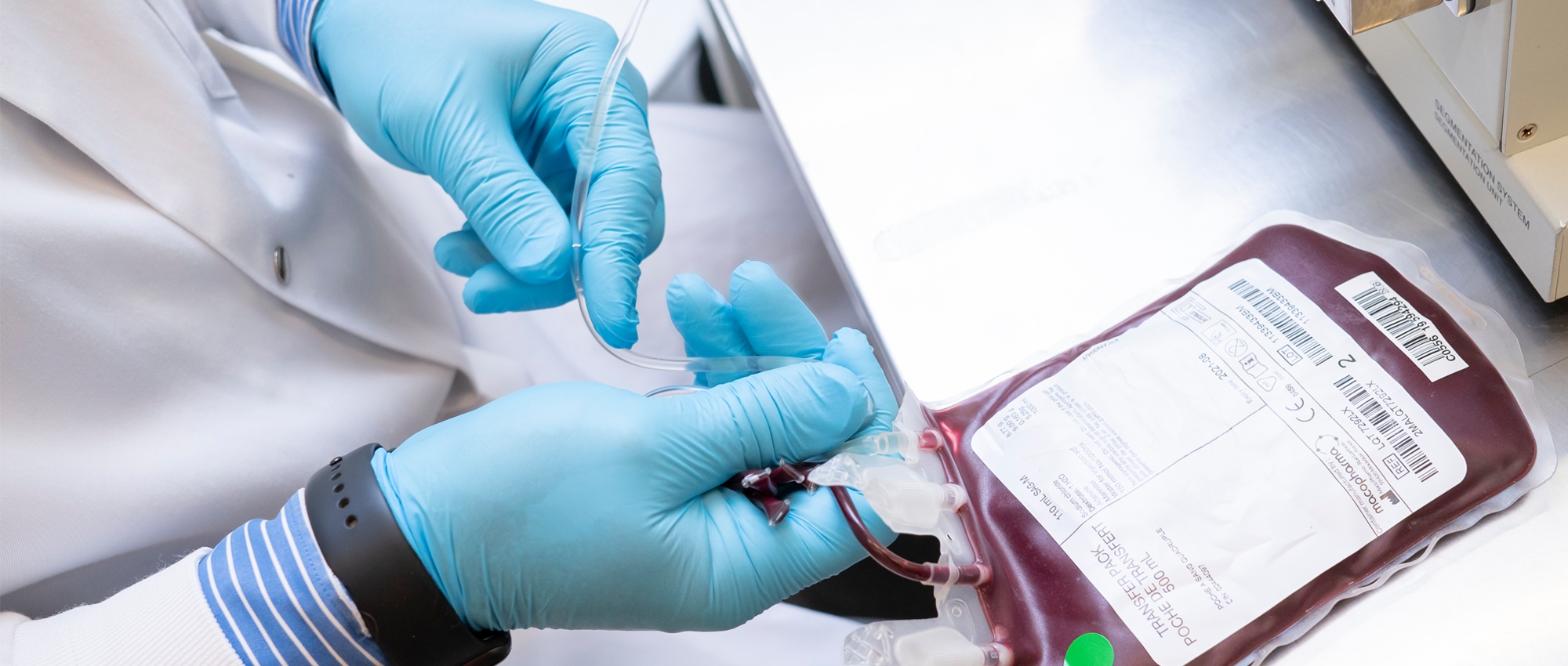Wait to donate reduced for short-term travellers to malaria risk areas
New evidence-based change will make thousands of Canadians eligible to donate blood
A new blood donor eligibility change will allow people to donate blood three months after leaving a malaria risk area if they spent less than six consecutive months there. Before Aug. 30, 2020, these short-term travellers had to wait 12 months.
“Canadian Blood Services aims to be as inclusive as possible about who can donate while fulfilling our commitment to protect Canada’s blood supply,” says Dr. Mindy Goldman, medical director of donor and clinical services at Canadian Blood Services. “This change reflects the most up-to-date evidence, which shows that it is safe for short-term travellers to malaria risk areas to donate after three months.”
This change will make it possible for thousands of Canadians to donate blood who previously could not. Malaria risk due to travel is one of the most common reasons for people being unable to donate, second only to having low hemoglobin. In 2019, between 1,100 and 2,000 donors per month were ineligible to donate due to malaria risk travel.
What is malaria?
Malaria is a disease caused by a parasite that mosquitoes carry. Its symptoms can range from a mild fever to life-threatening complications and death.
Malaria is not endemic to Canada, meaning that when people who live in Canada get the illness, they were infected in another country. Mosquitoes carrying the malaria-causing parasite are in many parts of the world, but 90 per cent of malaria cases occur in Africa. We use a list provided by the U.S. Centers for Disease Control and Prevention to identify high-risk areas, which in addition to much of Africa include Southeast Asia, the Eastern Mediterranean region, Mexico, Central America, the Caribbean, and South America. Here’s the full list.
There is no licensed test in Canada or the US to screen blood donors for malaria. For this reason we use waiting periods. Additionally, people who have had malaria are permanently ineligible to donate whole blood or platelets. They may, however, donate “source plasma,” which is plasma used for the manufacture of medications but not transfusion.
Putting safety first while evolving with the science
Although malaria can be transmitted by blood, there are no documented cases of it being transmitted to patients in Canada or the U.S. by blood donors who had stayed briefly in malaria risk areas. A review of studies from around the world provided the evidence needed to evolve this eligibility criterion.
In Canada, there are only three documented cases of recipients getting malaria from a blood transfusion, all of which happened before Canadian Blood Services was established — in 1994, 1995 and 1997. In all three cases, the donors had had malaria in the past. Those cases informed the decision to permanently prohibit blood donation by people with a history of the disease. This is consistent with data from the U.S., France, and the U.K.
“We know that malaria is very rare in travellers returning from short-term trips to malaria risk areas. This is because short-term travellers have less opportunity to be exposed, and the areas visited by most travellers from Canada are relatively low risk,” says Dr. Goldman.
In Canadian and American studies, the vast majority of cases of malaria are found in immigrants from parts of the world where malaria is endemic, particularly Africa, with extremely few cases among travellers who have visited a malaria-risk area for a short period of time. Moreover, the type of malaria most associated with blood transmission typically has the most severe symptoms and appears relatively quickly, making it unlikely someone would be infected and not know it.
Three year wait remains after longer trips to malaria risk areas
The new eligibility change only applies to short-term travel. Those who have spent six months or more in a malaria risk area will still need to wait three years before they can donate blood. Anyone who has had malaria will remain permanently ineligible to donate whole blood or platelets.
There is still another way to give. Source plasma donations do not have a travel-related waiting period because fractionation — the process used to manufacture medications from plasma — kills the parasite that causes malaria. Source plasma can be donated at specific Canadian Blood Services donor centres. People who have had malaria in the past can also donate source plasma six months after they recover.



